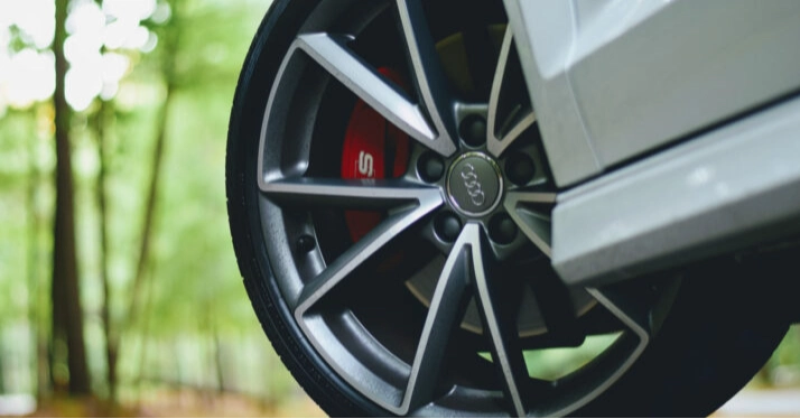- CA Yunus pays homage to Liberation War martyrs on Victory Day |
- Bangladesh capital market extends losing streak for second day |
- Bangladesh celebrates Victory Day Tuesday |
- 'Different govts presented history based on their own ideologies': JU VC |
Chinese Scientists Turn Tyre Friction into Clean Energy

Chief Adviser Professor Muhammad Yunus inaugurated the Environment Fair-2025 and the National Tree Plantation Campaign and Tree Fair-2025 today at the Bangladesh-China Friendship Conference Centre.
During the event, he presented the National Environment Award, the National Wildlife Conservation Award, and the National Tree Plantation Award to individuals and organizations for their outstanding efforts in environmental protection and wildlife conservation.
Additionally, profit-sharing cheques were distributed to beneficiaries of the Social Forestry Programme.
Environment, Forest and Climate Change Adviser Syeda Rizwana Hasan and Environment Secretary Dr Farhina Ahmed also addressed the gathering.
Syeda Rizwana Hasan announced that the Environment Fair will run from June 25 to June 27, while the Tree Fair will continue until July 24. Both fairs will be open daily from 9 am to 9 pm.
This year’s Tree Plantation Campaign carries the theme: "Let's Plant in a Planned Way to Build a Green Bangladesh."
To mark these events, a range of awareness activities including art, debate, and slogan competitions, seminars, and industry-related programmes will be held at over 100 educational institutions across Dhaka and other districts.
Tree fairs and sapling distribution drives will take place nationwide, complemented by public outreach campaigns such as SMS messaging, banner displays, and participatory events to encourage widespread environmental engagement.Home Adviser Lieutenant General (Retd.) Md Jahangir Alam Chowdhury has said the government is prioritising the arrest of drug kingpins to rid the country of narcotics.
“Drug and corruption are the two gravest challenges we face. Apprehending the masterminds behind drug trafficking is more crucial than targeting the carriers,” he told journalists after distributing cheques to private drug rehabilitation centres.
The event was held to mark the International Day against Drug Abuse and Illicit Trafficking 2025, to be observed tomorrow.
In response to questions about the involvement of some law enforcement personnel in drug trafficking, the adviser said strict legal action will be taken against anyone found guilty.
He mentioned that a senior official has already been suspended over suspected links with drug networks and will face justice.
Jahangir Alam also announced that the government is building drug rehabilitation centres in seven divisions at a cost of Tk 1,400 crore.
He praised the efforts of private rehab centres in helping addicts return to normal life and urged them to enhance their work.
He noted that contraband items like Phensedyl and Yaba are being smuggled from India and Myanmar.
“We’ve requested both governments to shut down the drug factories. Talks have already been held with the relevant authorities to take action,” he added.A team of Chinese scientists has developed an innovative device that transforms the friction between vehicle tyres and road surfaces into clean electricity.
Known as the roadbed tribological energy harvester (RTE harvester), the device offers a new way to tap into a vast, previously overlooked source of energy.
Globally, about 85% of a vehicle's energy is lost as heat and friction. Tyre-road interaction alone is estimated to hold an untapped energy potential of around 0.3 terawatts per year, equivalent to the output of 30 Three Gorges Dams in China.
Developed by researchers at the Beijing Institute of Nanoenergy and Nanosystems under the Chinese Academy of Sciences, the harvester is embedded in the roadbed. It can produce a peak power output of 16.4 milliwatts from a single tyre impact and achieve an energy conversion efficiency of 11.7%.
Constructed from a freestanding layer triboelectric nanogenerator array, the device is durable and functions reliably in extreme temperatures from –40°C to 60°C and under varying humidity levels—making it suitable for diverse global environments.
Its low production cost, estimated at $71.3 per square metre, enhances its potential for widespread implementation across road networks.
The system also enables self-powered intelligent transport infrastructure, capable of supplying energy to sensors that monitor vehicle speed and weight—boosting road safety and management without external power sources.
A 50-metre deployment of the harvester can meet the energy needs of traffic lights, surveillance cameras, and other roadside facilities along a one-kilometre stretch of road.
According to the study, recently published in Science Advances, this innovation opens the door to efficient energy harvesting and decentralised power systems, and advances integration across vehicle-to-road, vehicle-to-infrastructure, and vehicle-to-everything systems.
The findings were highlighted by co-corresponding authors Wang Zhonglin and Chen Baodong, who led the research team.

